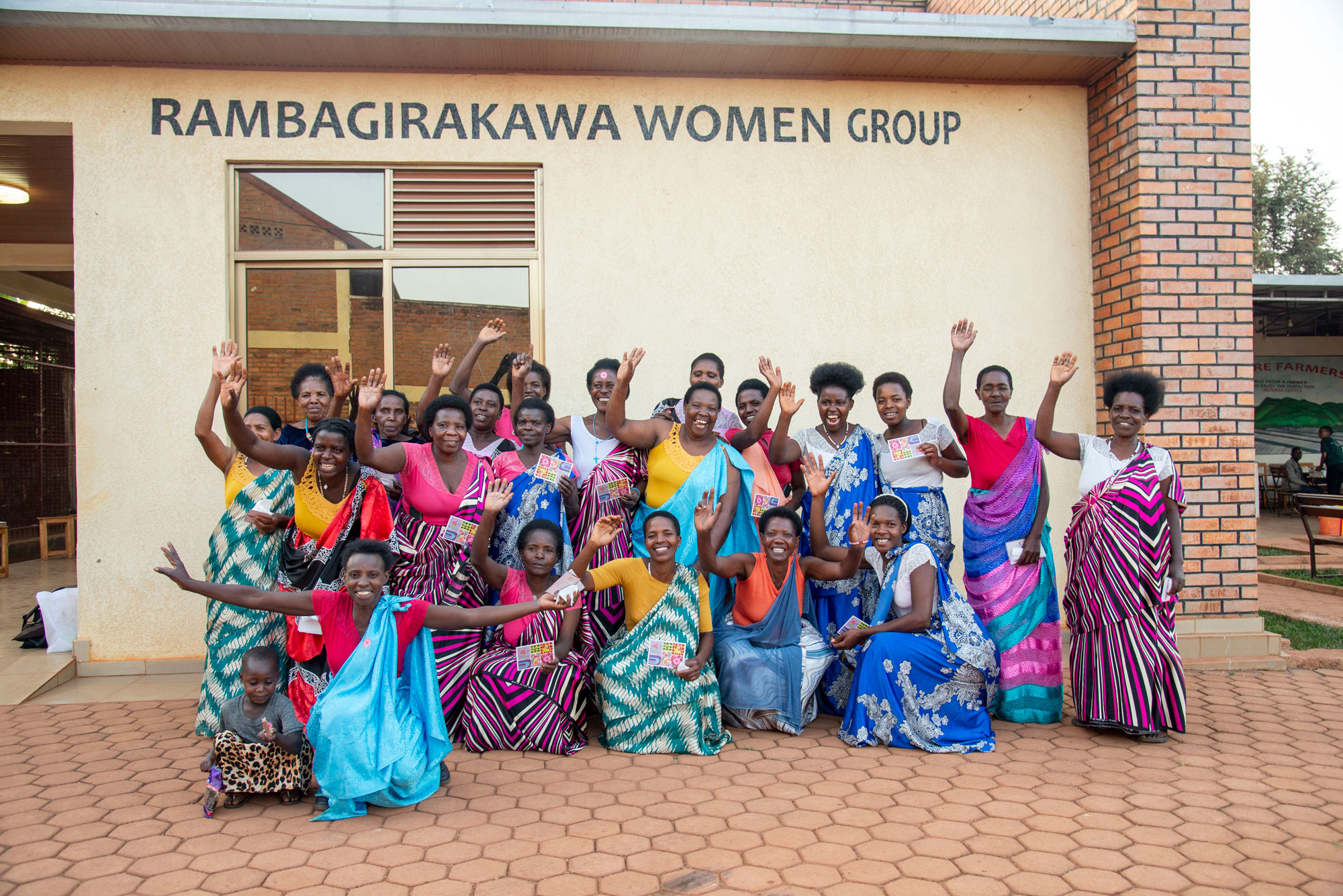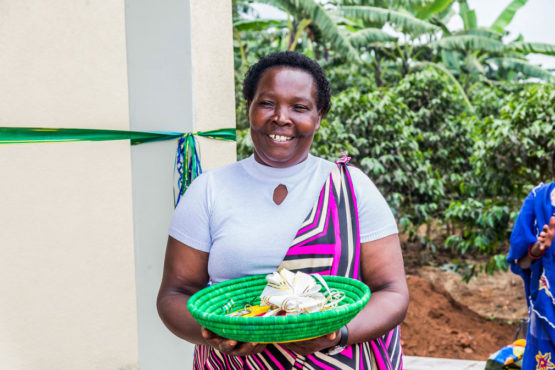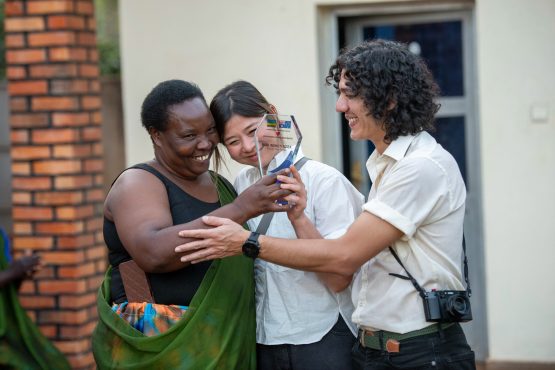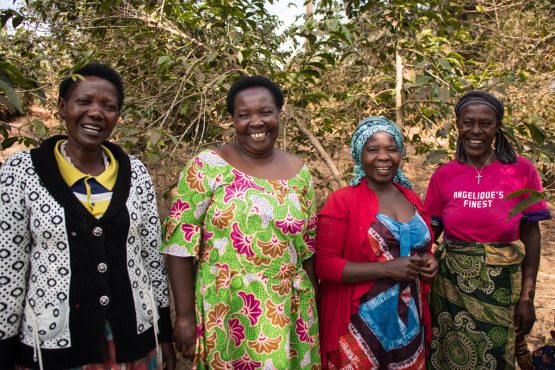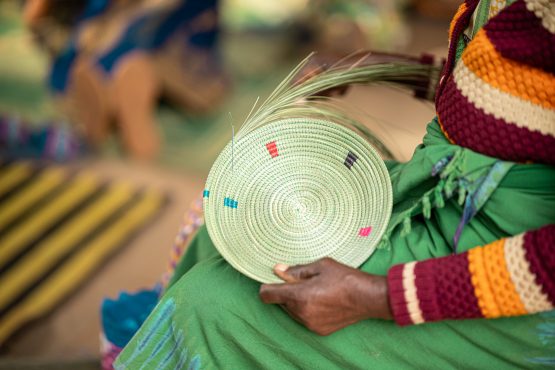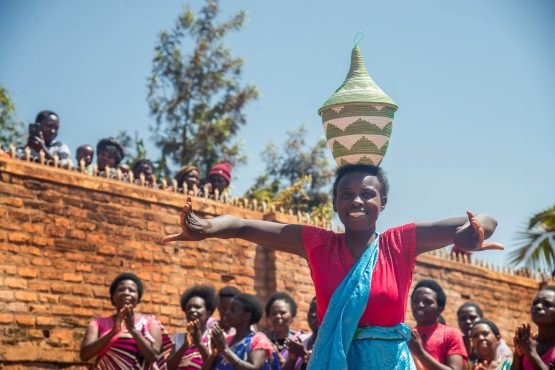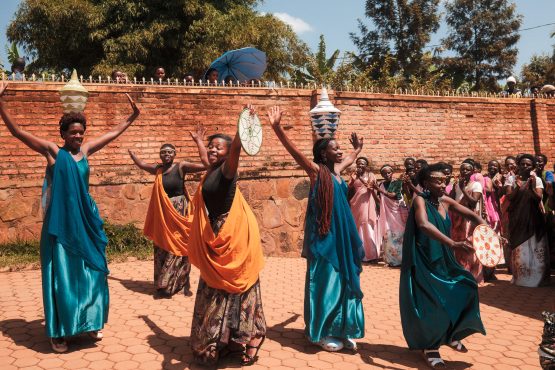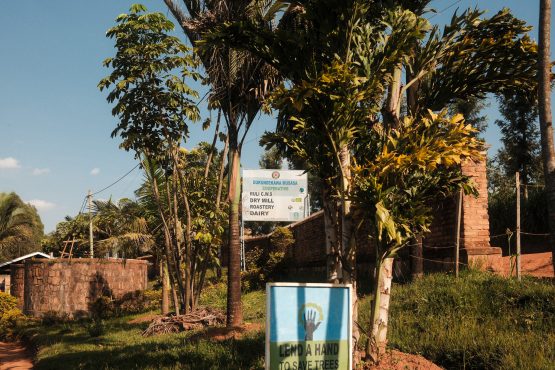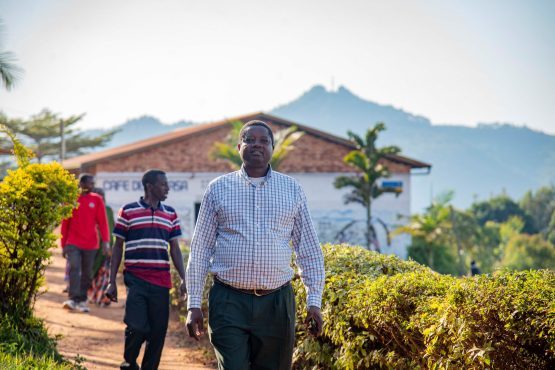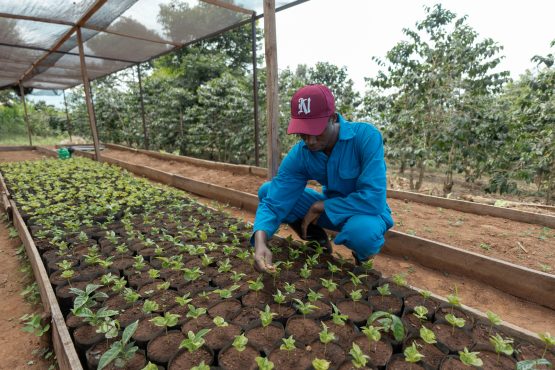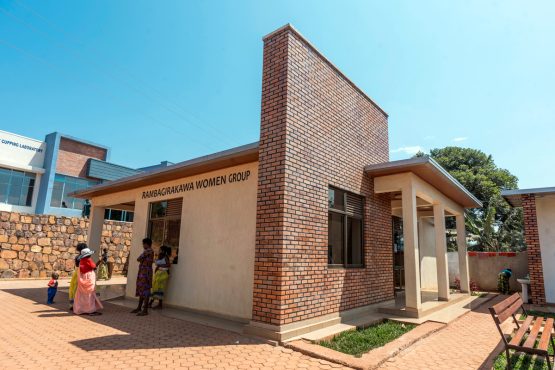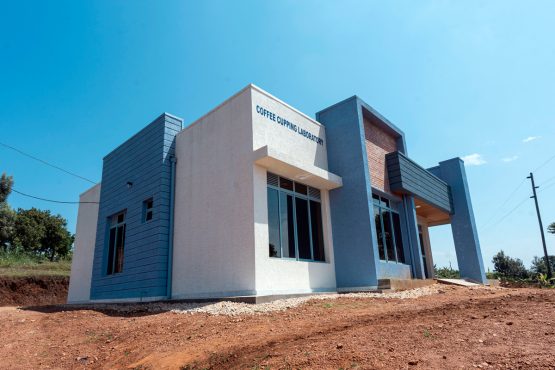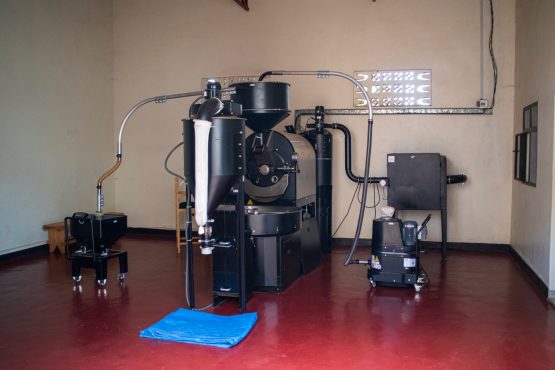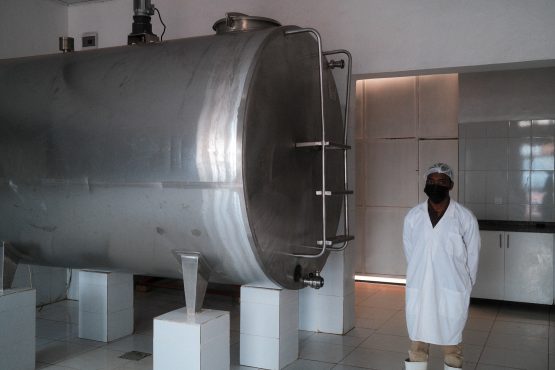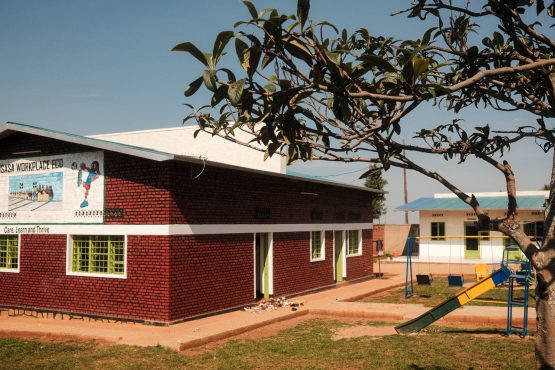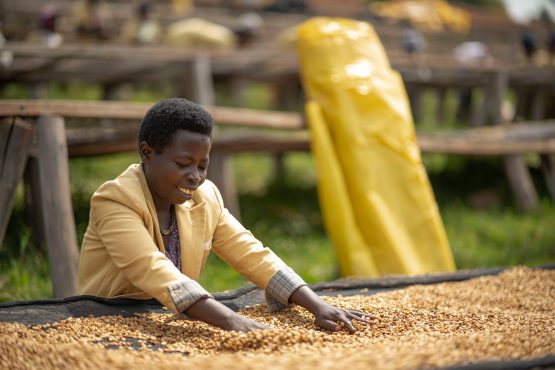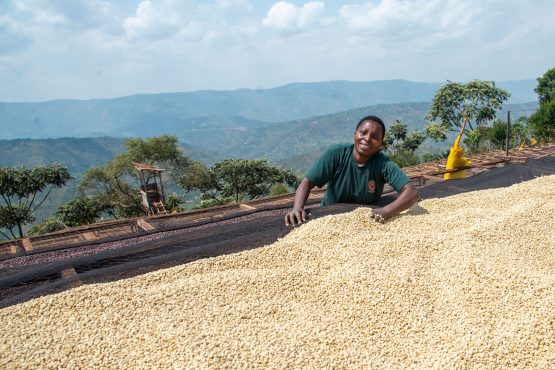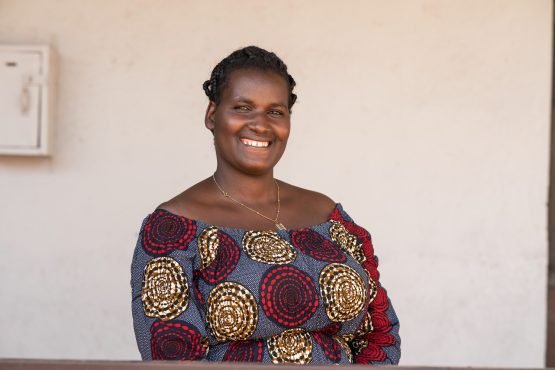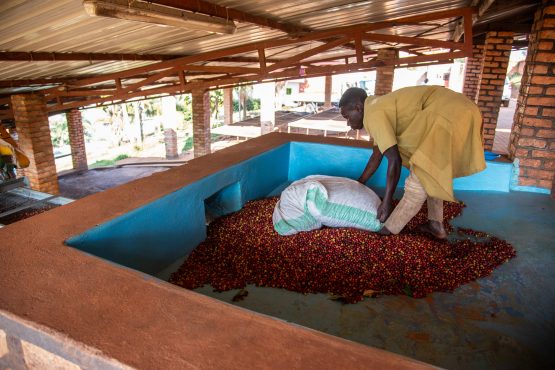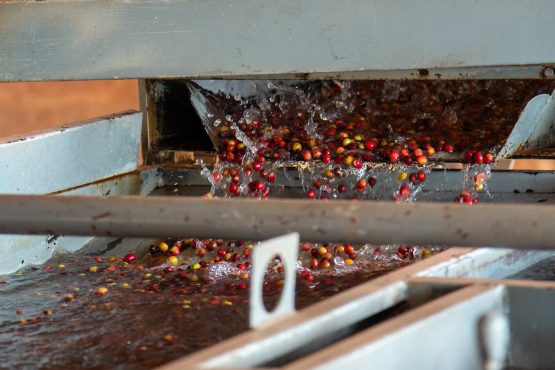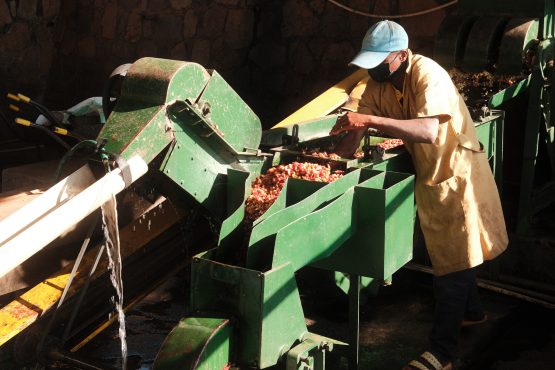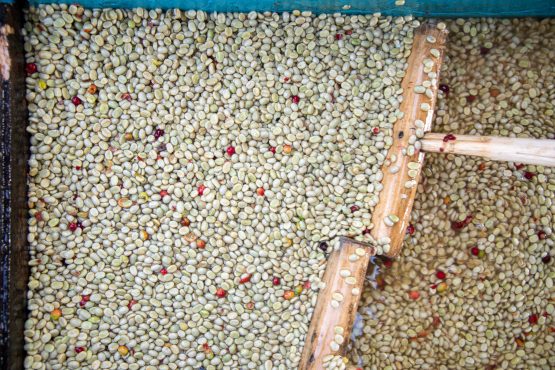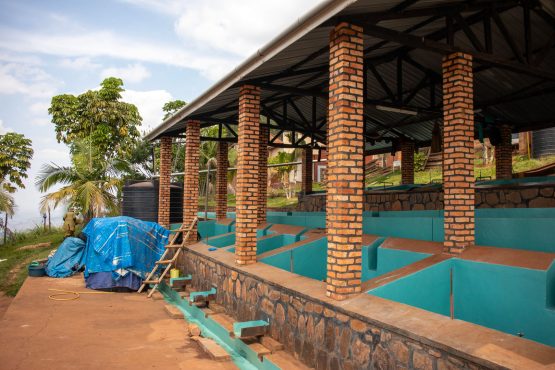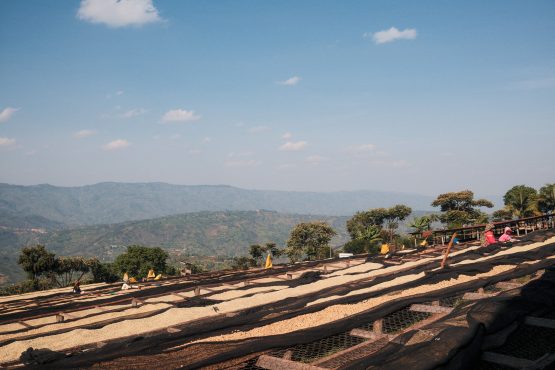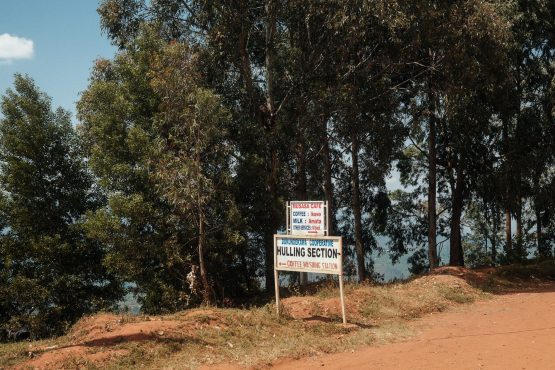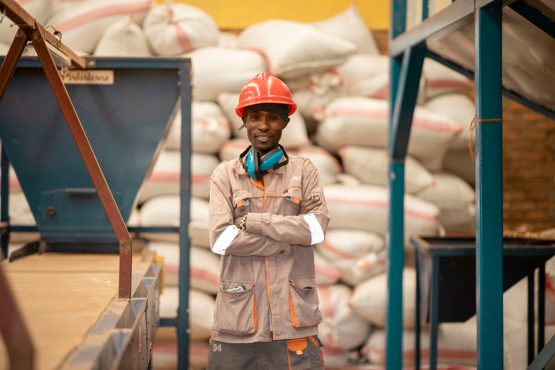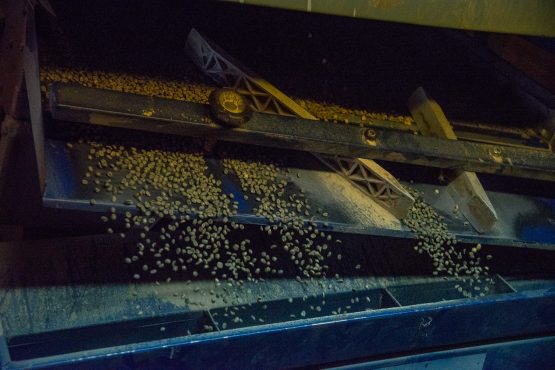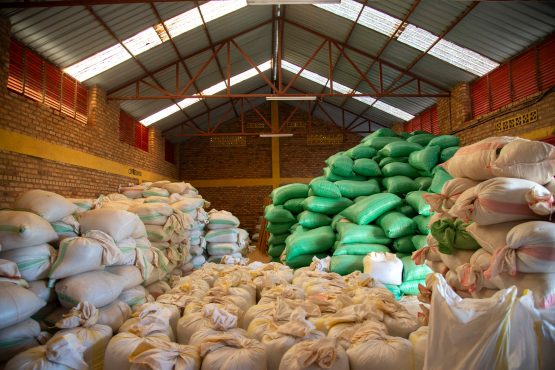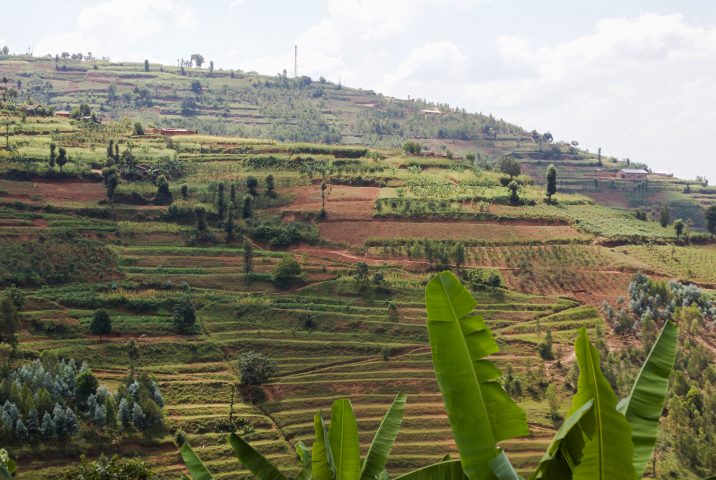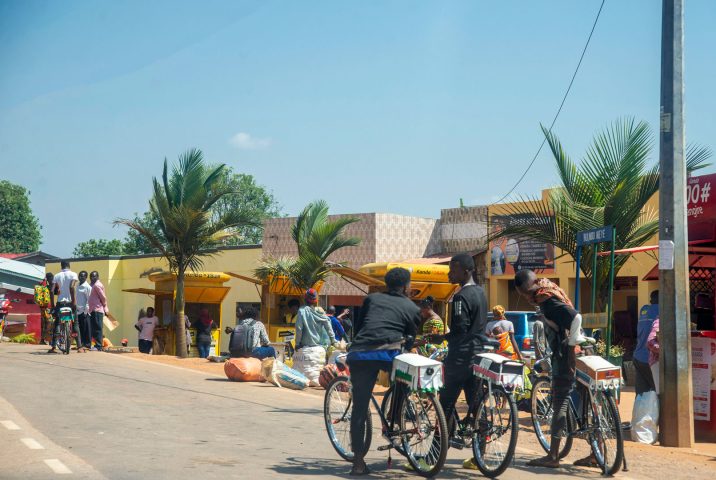Ruli Women’s Coffee
Vibrant, sparkling acidity with caramel sweetness. Orange, raspberry and panela sugar.
Out of all the coffee we source, few offerings make an impact as significant as our women’s coffee microlots from Rwanda, as they are key in securing financial independence to countless women across the country. This special offering was produced using coffee cherry grown by 136 women who own small farms in the hills surrounding Ruli washing station, the largest and busiest of three washing stations owned by the Dukunde Kawa Cooperative.
Unlike most coffee-producing countries, where a farmer’s land size is used as a measure of scale, farms in Rwanda are often very small, and as a result production capability is measured by the number of trees a farmer tends to. The majority of women who contributed to this lot own a couple of hundred trees, planted on one tenth of a hectare of land, along with subsistence food crops like maize, beans and sorghum and livestock like cows, goats and chickens.
Many of the women who contributed to this lot are also members of Rambagirakawa, a women’s alliance within Dukunde Kawa that was formed to advocate for support and resources for female coffee producers. Through collaboration with both Rambagirakawa and international buyers, Dukunde Kawa has assisted the women in processing and marketing their coffees as a separated ‘Women’s Coffee’ lot, which earns them an additional bonus payment on top of the quality premium all cooperative members receive. To distinguish their coffee and ensure it is processed separately, the women have organised to deliver cherry to the washing station on certain days of the week. While this lot was processed at Ruli washing station, members of Rambagirakawa may also deliver to its sister washing stations, Mbilima and Nkara, depending on where they live.
Established in 2012, Rambagirakawa is one of Dukunde Kawa’s most inspiring success stories. The association was founded by Odette Murekatete, who hoped to band the co-op’s women together to have a louder voice within Dukunde Kawa. Many of Rambagirakawa’s founding members were widowed by the 1994 genocide and already relied upon each other for farming and financial advice — by initiating an official association within the cooperative, they widened their reach and secured ongoing funding for their projects. The result is an empowered and ambitious alliance of women, whose ever-expanding activities focus on creating opportunity and success for the women and children in their community.
The group is open to all of the female members of Dukunde Kawa and has grown to 304 members. Besides selling their coffees as separated lots, members have wholeheartedly pursued additional income opportunities, like basket weaving and embroidery, to develop greater economic independence. The funds generated by the sale of these crafts are significant, and have become one of the co-op’s five main sources of income. Using their share of the profits generated, around half of Rambagirakawa’s members have been able to undertake upgrades to their homes, while most members have also invested them in the education of their children and grandchildren.
Outside of coffee, the women regularly come together socially and to work other projects and many have developed greater confidence within the cooperative and the community at large as a result. For example, the team of dancers and singers who welcome us to Dukunde Kawa every year, work on the songs and routines in the weeks leading up to the period when most coffee buyers visit. Over the years, they have become quite well-known in the region of Ruli, and have even been invited to perform at official ceremonies in town. Since our first visit, the routines have become more intricate and complex, yet the smiles and joy we witness have never felt forced. When we mentioned this to the troupe’s leader (also named Odette, Odette Mukeshimana) on our most recent trip, she agreed with our sentiment and told us it’s because when performing she’s “manifesting happiness for herself and she expresses it through dance.”
ABOUT RULI WASHING STATION
Ruli washing station was the first site established by Dukunde Kawa, back in 2003. It remains the main centre of operations for all of the cooperative’s activities, serving as the head office for the cooperative’s management team, who can often be seen buzzing about the property during the harvest.
In addition, the site is home to the Rambagirakawa Women Alliance’s community building and the newly-built Musasa Early Childhood Development Centre (Musasa ECDC), along with Dukunde Kawa’s cupping lab, nursery and model farm. Recently, the cooperative decided to expand their business by establishing a commercial roastery at Ruli, that supplies coffee to restaurants and hotels across town. Because the washing station is so central, Dukunde Kawa have also opened a café here, which sells the co-op’s coffee and locally baked goods. Recognising it has potential to service many members of the community, the cooperative is also hoping to establish their own bakery, to be run by youth who are part of the co-op.
Ruli is also where Dukunde Kawa’s dairy is located. Over the years, Dukunde Kawa have provided many of their member farmers access to their own cows, which are an important asset to a farming family. Culturally, they are seen as a symbol of wealth and status in Rwanda; practically, they provide milk and yoghurt to feed the family, produce excellent manure for the coffee farms, and create an opportunity for additional income. Having recently upgraded their largest pasteuriser from a 500L machine to one that can process 5,000L, Dukunde Kawa have been able to expand their operations at the dairy factory and take on a contract with a distributor who works throughout all of Rwanda and its neighbouring countries.
Over 2,000 farmers deliver cherry to the washing station throughout the season. Quality control at Ruli is overseen by Emerthe Mukamurigo, who has held this position since 2014, while day to day operations are managed by Philomene Nyirabantu, who has been a co-op member and part of Ruli’s full-time staff since 2004. In the twenty years she has been employed by the cooperative, Philomene has worked both as a drying officer at Ruli and as a field officer (she completed her studies as an agronomist in 2011), supporting member farmers in improving the quality and volume of their crop. Since 2022, Philomene has managed production at Ruli, earning the title of Station Manager in 2025.
During the harvest, Philomene is assisted by Dative Niyifasha, who supervises sorting and drying. There are a whopping 250 drying beds at Ruli, which require constant oversight. Dative has also been a cooperative and staff member since 2004, having transitioned from working with farmers on the field in 2017 to become a drying officer at Ruli. Both Philomene and Dative deliver coffee to be processed at Ruli and are members of the Rambagirakawa Women’s Alliance (Dative’s youngest is also a student at Musasa ECDC). The pair manage Ruli’s team with positivity and confidence — the pace at a processing site of this size can be relentless during the peak of the harvest — relying on their two decades of experience with Dukunde Kawa to continually encourage the washing station’s staff.
Ruli is Rainforest Alliance certified, UTZ certified, and Fair Trade certified. These certifications help the growing cooperative find different markets for the coffee. “We were already doing a lot of the things that were required for these certifications”, Isaac (the executive secretary of the cooperative at the time) explained, “We are always trying to be the best cooperative we can be. Getting the certifications has helped highlight what we are doing well and helped us raise our standards in other areas.”
Head here to learn more about the work of Dukunde Kawa in Rwanda.
PROCESSING AT RULI WASHING STATION
The team at Dukunde Kawa takes a huge amount of care in processing its coffee. All members of the cooperative are trained to only select ripe coffee cherries from their trees.
- On delivery, the cherries are inspected and sorted by hand to ensure only the very ripest cherries are processed. Farmers do the selecting, and receive the highest income from the ripest, healthier fruit. The remainder of their crop still gets purchased by the co-op, at a lower price, to be processed and sold for the internal market.
- Cherry is then sorted by weight using a Pinhalense machine, with any floaters are removed. By using a machine, rather than a clerk, Dukunde Kawa are more transparent with contributing growers about which fruit gets processed. Coffee is then depulped using a mechanical pulper that divides the beans into three grades by weight, with the heaviest, A1, usually having the highest cup quality.
- After pulping, the coffee is pre-washed, graded again using floatation channels that sort the coffee by weight, and left to ferment overnight for around 12–18 hours. The following day, wet parchment is the washed a second time and left to ferment for a further six hours — with the goal of removing as much mucilage as possible without using machinery that may accidentally crush or damage the beans.
- As with most washing stations in Rwanda, women do the majority of hand-sorting. This takes place in two stages – on the covered pre-drying tables and on the drying tables. Washed beans are moved from the wet fermentation tanks onto the pre-drying tables, where they are intensively ‘wet sorted’ under shade for four hours. The idea is that greens (unripe beans) are still visible when the beans are damp, while the roofs over the tables protect the beans from the direct sunlight.
- Next, the beans are moved onto the washing station’s extensive raised drying tables for around two weeks, where they are sorted again for defects, turned regularly and protected from rain and the midday sun by covers, ensuring both even drying and the removal of any damaged or defective beans. During this period the coffee is also turned several times a day by hand to ensure the coffee dries evenly and consistently.
- After reaching 11-12% humidity, the coffee is then transported to Dukunde Kawa’s purpose-built warehouse prior to final dry milling and hand sorting at the cooperative’s milling facilities.
- Located in Ruli, Dukunde Kawa’s dry mill has the capacity to process one full container of coffee a day — and combines the use of technology with meticulous hand sorting to ensure only the best beans are bagged. Before being loaded for export, Rwanda’s National Agricultural Export Development Board also inspects and samples the prepped parchment.
WHY WE LOVE IT
We feel incredibly proud of our partnership with Rambagirakawa, and with how much support the Australian and Thai coffee communities have shown for their projects. Since the first ‘Women’s Coffee’ lot we purchased in 2018, the alliance has grown in numbers and in influence within Dukunde Kawa cooperative, and we’re excited to feature another one of their lots processed at Ruli this year. The latest crop is vibrant and sweet, with orange, raspberry and panela sugar in the cup.
